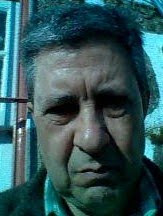LANDSCAPE
Time passed, turning everything to ice.
Under the ice, the future stirred.
If you fell into it, you died.
It was a time
of waiting, of suspended action.
I lived in the present, which was
that part of the future you could see.
The past floated above my head,
like the sun and moon, visible but never reachable.
It was a time
governed by contradictions, as in
I felt nothing and
I was afraid.
Winter emptied the trees, filled them again with snow.
Because I couldn’t feel, snow fell, the lake froze over.
Because I was afraid, I didn't move;
my breath was white, a description of silence.
Time passed, and some of it became this.
And some of it simply evaporated;
you could see it float above the white trees
forming particles of ice.
All your life, you wait for the propitious time.
Then the propitious time
reveals itself as action taken.
I watched the past move, a line of clouds moving
from left to right or right to left,
depending on the wind. Some days
there was no wind. The clouds seemed
to stay where they were,
like a painting of the sea, more still than real.
Some days the lake was a sheet of glass.
Under the glass, the future made
demure, inviting sounds;
you had to tense yourself so as not to listen.
Time passed; you got to see a piece of it.
The years it took with it were years of winter;
they would not be missed. Some days
there were no clouds, as though
the sources of the past had vanished. The world
was bleached, like a negative; the light passed
directly through it. Then
the image faded.
Above the world
there was only blue, blue everywhere.
Louise Glück
O tempo passou, transformou tudo em gelo.
Sob o gelo, o futuro bulia.
Se caísses lá dentro, morrias.
Era um tempo
de espera, de acção suspensa.
Eu vivia no presente, que era
a parte do futuro que podíamos ver.
O passado pairava sobre a minha cabeça,
como o sol e a lua, visível mas inalcançável.
Era um tempo
governado por contradições, como
Não sentia nada e
tinha medo.
O inverno esvaziou as árvores, voltou a enchê-las de neve.
Como eu nada sentisse, a neve caiu, o lago gelou.
Como se eu tivesse medo, permaneci imóvel;
o meu bafo era branco, uma descrição do silêncio.
O tempo passou, e uma parte dele tornou-se isto.
E outra parte evaporou-se simplesmente;
podíamos vê-la a pairar sobre as árvores brancas,
formava partículas de gelo.
Esperas a vida inteira pelo momento oportuno.
Depois o momento oportuno
revela-se acção consumada.
Eu via mover-se o passado, uma fila de nuvens a avançar
da esquerda para a direita ou da direita para a esquerda,
consoante o vento. Por vezes
não havia vento. As nuvens pareciam
ficar onde estavam,
como uma pintura do mar, mais imóveis do que reais.
Por vezes o lago era um lençol de vidro.
Sob o vidro, o futuro murmurava,
modesto, convidativo:
tinhas de te concentrar para o não ouvires.
O tempo passou; chegaste a ver parte dele.
Os anos que levou eram anos de inverno;
ninguém lhes sentiria a falta. Por vezes
não havia nuvens, como se
as fontes do passado tivessem desaparecido. O mundo
perdera a cor, como um negativo; a luz atravessava-o
de lado a lado. Depois
a imagem apagava-se.
Por cima do mundo
só havia azul, azul em toda a parte
(Trad. Rui Pires Cabral)









